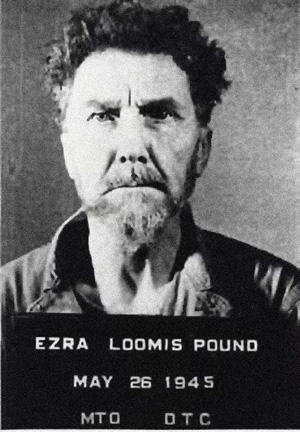
Certain times, these times, often leave me wondering, late of an afternoon, what certain artists long dead might have been prompted to say about them. Although good guy Bruce Springsteen, a songwriter with a conscience, has been stumping for Obama with respectful acoustic sets in swing states, one wonders what John Lennon—never too concerned with propriety—might have done if he’d been allowed more life than he got. One could imagine him having made quite a noise this season, noise to which one might have sung along.
My other wonder today involves Ezra Pound. A complicated figure, an anti-Semite, a great poet and critic, and the sort of patriot so patriotic he became a traitor to his cause, not to say to himself. Pound’s voice could, when decrying any of his passing hatreds (the demise of the democratic experiment under the weight of a capitalist system that he found barbaric, for one), grow shrill. I wouldn’t argue that more shrillness is what we need right now, but from a selfish standpoint, the idea of Ezra Pound, at his best and worst, being interviewed by, say, Bill O’Reilly, offers more imaginary pleasure than SNL or the Daily Show are managing to deliver.
Imagined comedy aside, for the weekend read, I offer a little something for your ears, beauty and sadness: Pound’s recorded poetry. From 1939 to 1972, Pound made made many recordings of his poems. During the summer of 1970, very old and very unwilling to talk to anyone, having come to the conclusion that he had failed everyone, he put down his versions of the Confucian odes, among which is the sing-song sadness of “Alikter-Ole Brer Rabbit watchin’ his feet.”
Earlier, in 1958, just off his release from St. Elizabeths Hospital, its wing for the criminally insane, Pound in a strong voice descanted his early poem, “Hugh Selwyn Mauberley,” which begins:
“I am going to read my poem with great emphasis on the rhythm, and that may seem strange if you are not used to it,” Yeats said, before his own reading of “The Lake at Innisfree.” If such rhythms suit you, spend time this weekend over at Pennsound’s page devoted to Pound’s collected recordings. You can download them all, too, onto your whatsit, and have Pound between your ears as you try to outrun other voices.


